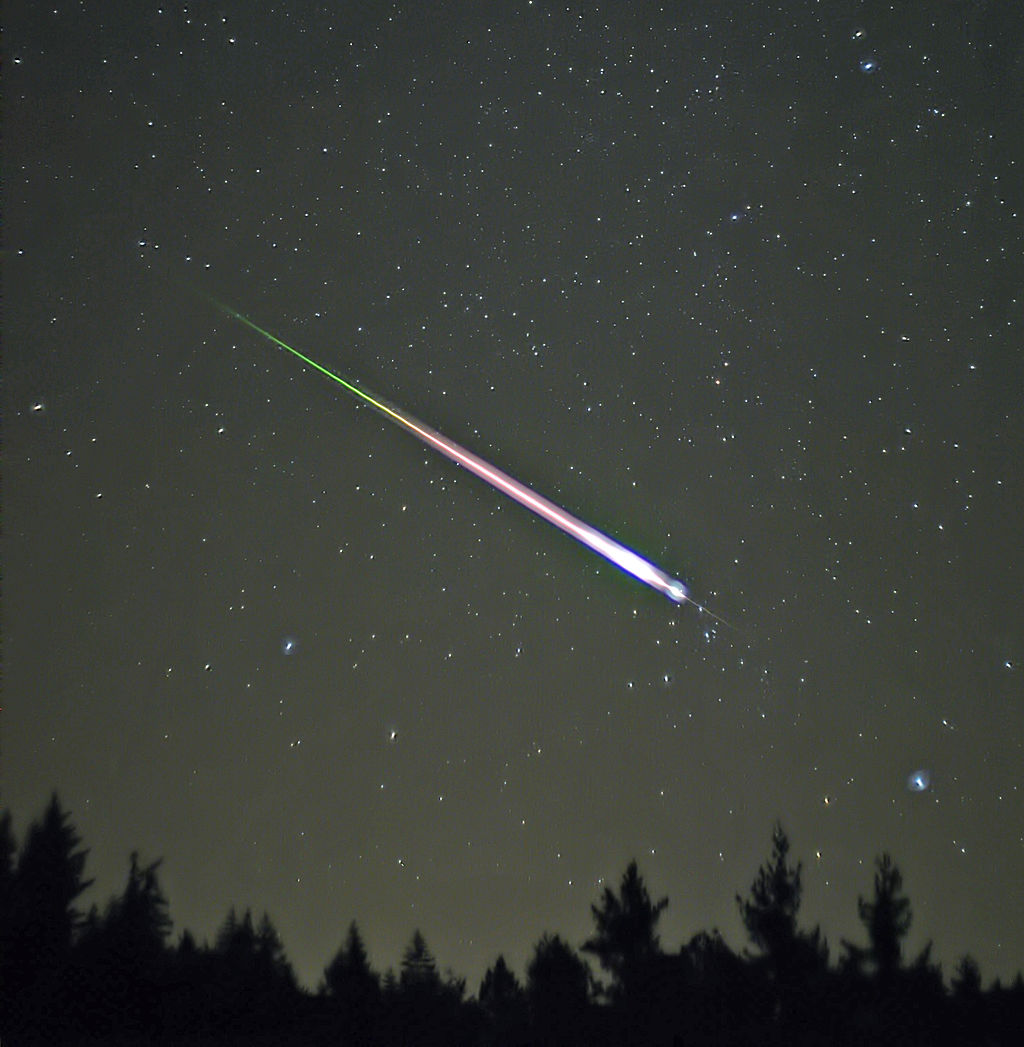Prioritize...
By the time you are finished reading this page, you should be able to define meteorology, and identify common applications of meteorology.
Read...

We can't really begin studying meteorology if we don't know what it is first! For starters, let me tell you what meteorology is not. It is not the study of meteors (small rocks and metallic objects) flying through outer space. Perhaps you already knew that, but believe it or not, I've encountered a number of people who have that notion. Meteorology is not the study of meteors, so if you had that misconception coming into the course, erase it from your mind!
So, what is meteorology? You're probably most familiar with meteorology as the study of the science of weather and weather forecasting. Indeed, understanding various aspects of the weather will be our focus for much of this course. But, meteorology isn't just about the weather forecast. More broadly, meteorology is the study of the physics and chemistry of Earth's atmosphere, including its interactions with Earth's surface (both land and water). In short, meteorologists want to completely understand how Earth's atmosphere works (and often use that knowledge for future predictions). That means meteorologists need to know about the composition, structure, and air motions within the atmosphere.
In case it wasn't clear from the definition above, there's a lot of physics and chemistry in meteorology! If you were pursuing an undergraduate degree in meteorology, your course schedule would be filled with courses in calculus, differential equations, and calculus-based physics courses (dynamics, thermodynamics, energy transfer, etc.). In this course, I'm going to do my best to spare you the gory details whenever I can so that you can walk away with a practical understanding of common weather events, and better consume the large variety of weather information available. Don't worry: there won't be any complex math (just a little arithmetic here and there).
How do meteorologists apply their knowledge of the atmosphere? The list below provides some common applications of meteorology (it's far from exhaustive, but it will give you an idea of the types of things meteorologists are involved in):
- weather observation and forecasting
- computer modeling of the atmosphere
- analyzing, monitoring, and predicting air pollution
- Earth science education
- helping industries (agriculture, energy, aviation, insurance, etc.) manage the risks posed by weather
- assisting emergency managers and disaster planners
- studying Earth's climate and climate change
Meteorologists work in these areas in academia, public-sector (government), and private sector (business) settings. You might be surprised at some of the companies and organizations that have meteorologists on staff or use various meteorological services! In this course, our focus is mainly going to be on weather analysis and forecasting (although we'll touch on a few other areas, too). After all, the weather impacts everyone, in some way, every single day.
Since meteorologists are so interested in the atmosphere, we need to start off by finding out what the atmosphere is "made of." Read on.